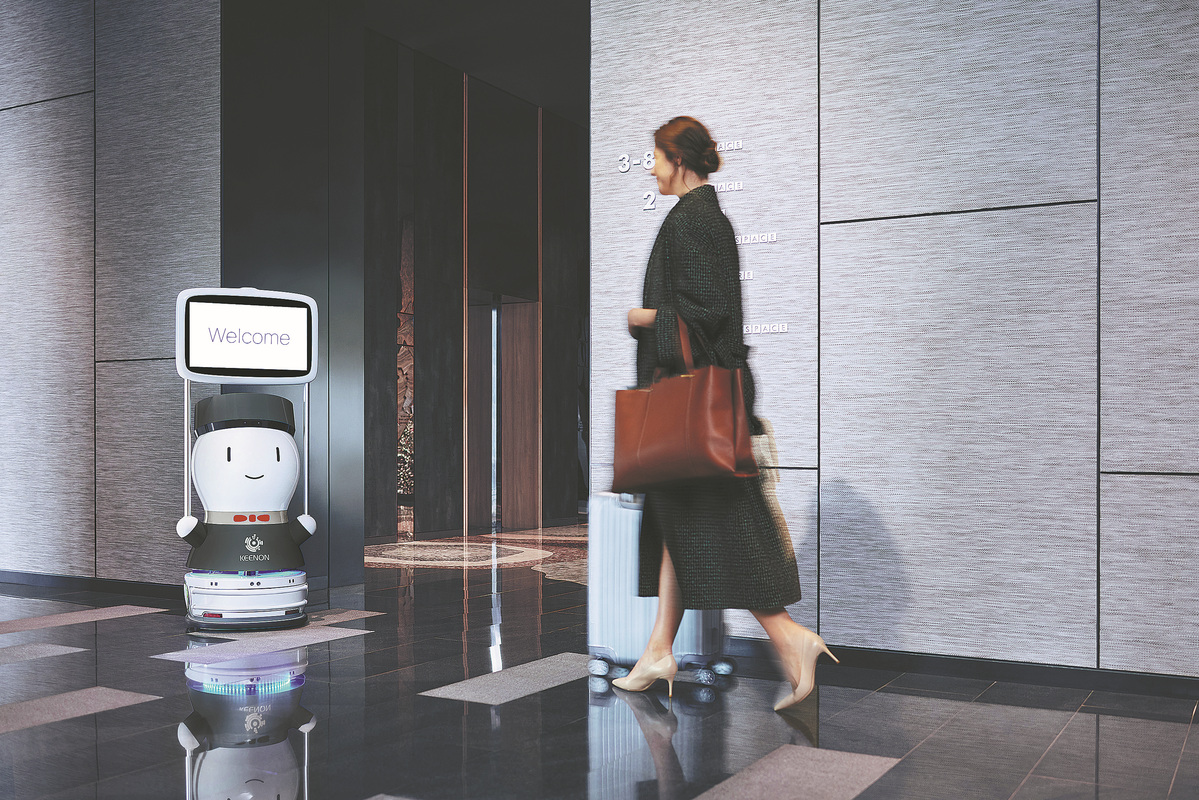
Amid COVID-19 impacts, companies see uptick in overseas orders for intelligent solutions
At a restaurant in Singapore, a server is busy swerving between tables and bringing dishes to hungry customers. The server always brings the dishes on time, never complains of being tired and is often tipped with dimes by frequent visitors.
However, the server is not a human but a delivery robot developed by Shanghai-based unicorn Keenon Robotics, which has been working as an official employee for over a year at the restaurant. The restaurant's cute employee, which is cartoon-like with a bright smile, adds a sense of warmth to help personalize the dining experience.
Amid COVID-19-related disruptions, delivery robots have been popular in foreign countries and regions, which greatly eases manpower and reduces human-to-human contact for safety. At the same time, it also brings huge opportunities to Chinese robotics companies.
"The pandemic has affected every industry. Many restaurants and hotels couldn't find enough qualified people to work at that time. Last year, we quickly decided to pitch our business to foreign markets and it's turned out well," said Li Tong, founder and CEO of Keenon Robotics, an artificial intelligence provider of intelligent unmanned delivery solutions.
According to Li, sales revenue of Keenon almost doubled last year thanks to the momentum gained in overseas markets. More than half of the company's robots were shipped to foreign markets in 2022 and are expected to be boosted to 70 percent in the coming one to two years, he said.
Founded in 2010, Keenon Robotics leverages its fully autonomous positioning and navigation technology to offer robots both at home and abroad, including server, disinfection and delivery robots. Embedded with leading technologies in lidar, machine vision, depth vision and sonar, such robots can work efficiently in complex environments.
"In the field of industrial robots, Chinese companies have already turned from followers to leaders and stand at the forefront with their counterparts in the US, no matter in terms of technologies or applications. They accumulated huge experience in China, and therefore are better at adapting to different application scenarios abroad," Li said.
"We believe that the autonomous revolution led by intelligent robotics will lead to a new revolution both at home and abroad by helping to remove tedious, labor-intensive and challenging tasks," he added.

